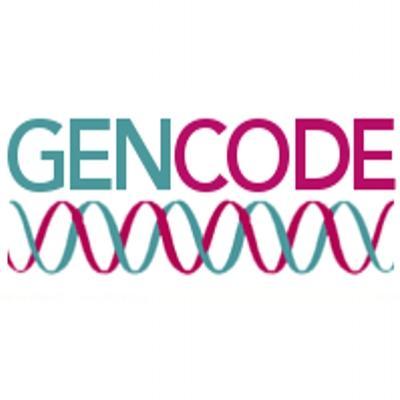#lragsp kết quả tìm kiếm
All #LRAGSP entries are now validated! We received submissions from 12 different teams with a total of 296 experiments for our three challenges!!! THANK YOU SO MUCH for everyone´s contributions. Now it is time for us to start analyzing data.....🤪

Challenge 3 will use lrRNA-seq data obtained for an organism without a well-documented genome: the Florida manatee. cDNA was obtained from white blood cells and sequenced with Sequel and MinIOn instruments. An unannotated draft genome is provided at the #LRAGSP site.

#LRAGSP is committed to transparent and reproducible research. Today, at our community call we presented the evaluation scripts for all 3 challenges. You can download them from github.com/LRGASP & test your performance before submitting! Meeting recordings also available!

Full details of how #LRAGSP Challenge 1 will be evaluated in thread below. See link for more info.
#LRAGSP Twitter thread of the week is about the evaluation of Challenge 1. Challenge 1 is transcript reconstruction using long reads when a well-annotated genome is available. More information about #LRGASP can be found at gencodegenes.org/pages/LRGASP/ 1/12 @GencodeGenes
#LRAGSP Twitter thread of the week is about the evaluation of Challenge 1. Challenge 1 is transcript reconstruction using long reads when a well-annotated genome is available. More information about #LRGASP can be found at gencodegenes.org/pages/LRGASP/ 1/12 @GencodeGenes
All #LRAGSP entries are now validated! We received submissions from 12 different teams with a total of 296 experiments for our three challenges!!! THANK YOU SO MUCH for everyone´s contributions. Now it is time for us to start analyzing data.....🤪

#LRAGSP is committed to transparent and reproducible research. Today, at our community call we presented the evaluation scripts for all 3 challenges. You can download them from github.com/LRGASP & test your performance before submitting! Meeting recordings also available!

Challenge 3 will use lrRNA-seq data obtained for an organism without a well-documented genome: the Florida manatee. cDNA was obtained from white blood cells and sequenced with Sequel and MinIOn instruments. An unannotated draft genome is provided at the #LRAGSP site.

Full details of how #LRAGSP Challenge 1 will be evaluated in thread below. See link for more info.
#LRAGSP Twitter thread of the week is about the evaluation of Challenge 1. Challenge 1 is transcript reconstruction using long reads when a well-annotated genome is available. More information about #LRGASP can be found at gencodegenes.org/pages/LRGASP/ 1/12 @GencodeGenes
#LRAGSP Twitter thread of the week is about the evaluation of Challenge 1. Challenge 1 is transcript reconstruction using long reads when a well-annotated genome is available. More information about #LRGASP can be found at gencodegenes.org/pages/LRGASP/ 1/12 @GencodeGenes
All #LRAGSP entries are now validated! We received submissions from 12 different teams with a total of 296 experiments for our three challenges!!! THANK YOU SO MUCH for everyone´s contributions. Now it is time for us to start analyzing data.....🤪

#LRAGSP is committed to transparent and reproducible research. Today, at our community call we presented the evaluation scripts for all 3 challenges. You can download them from github.com/LRGASP & test your performance before submitting! Meeting recordings also available!

Challenge 3 will use lrRNA-seq data obtained for an organism without a well-documented genome: the Florida manatee. cDNA was obtained from white blood cells and sequenced with Sequel and MinIOn instruments. An unannotated draft genome is provided at the #LRAGSP site.

Something went wrong.
Something went wrong.
United States Trends
- 1. Eagles 175K posts
- 2. Goff 19K posts
- 3. Lions 81.4K posts
- 4. Dan Campbell 9,560 posts
- 5. Jalen 32.7K posts
- 6. #ITWelcomeToDerry 8,669 posts
- 7. Gibbs 7,546 posts
- 8. Kevin Patullo 5,861 posts
- 9. GM CT 21.9K posts
- 10. #OnePride 5,187 posts
- 11. #BaddiesUSA 11.4K posts
- 12. House Republicans 27.8K posts
- 13. Vic Fangio 3,091 posts
- 14. AJ Brown 8,067 posts
- 15. Shedeur 56.7K posts
- 16. Gabriel 66.8K posts
- 17. Tom Cruise 16.2K posts
- 18. Nick Sirianni 1,500 posts
- 19. Collinsworth 2,923 posts
- 20. Sanders 55.4K posts



